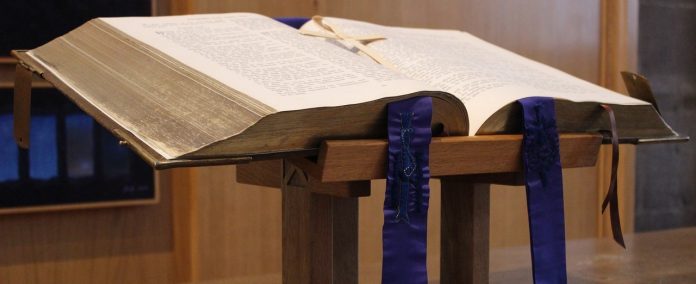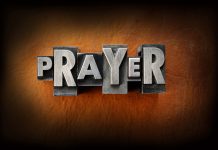
Woodeene Koenig-Bricker
For many Catholics, the correlation between the sacraments and the Bible is a bit hazy. When confronted by non-Catholics wanting to know how sacraments and Scripture fit together, many of us are hard-pressed to give solid answers. We might be able to tie the Eucharist to the Last Supper and baptism to Jesus’ own baptism in the Jordan, but beyond that, it can get dicey. However, if we—and our children—are to be the evangelists of the new millennium, it is vital to know the scriptural basis for the sacraments.
Teaching the link isn’t so much a matter of establishing a grade-appropriate lesson plan as it is understanding the biblical basis for our beliefs and then inserting that knowledge into our teaching when and where it is appropriate. For instance, with young children, it might be as simple as laying a foundation for the connection by saying, “The Bible tells us that the early Christians prayed for the sick, and that’s why we have the sacrament of the anointing of the sick.” However, for older children, especially teens, being able to cite exact Scriptures becomes more important.
Let’s take a look at where the sacraments appear in Scripture so you will be better prepared as a catechist to answer the question, “Where is that in the Bible?”
BAPTISM
Baptism was considered the first and foundational sacrament for the early Church. References to it can be found throughout the New Testament, including Matthew 3:16; 28:19; Mark 1:8, 16:16; John 3:5; Acts 1:4-5; 2:38; 8:16; 8:36-38; 11:16; 22:16; Romans 6:3-4; 1 Corinthians 12:13; Ephesians 5:25-26; Colossians 2:12; and 1 Peter 3:20-21.
CONFIRMATION
The first mention of the completion of baptism by the coming of the Holy Spirit is the account of Pentecost in Acts 2. Acts 19:3-6 makes it clear that baptism and confirmation are two separate, sacramental signs. In Hebrews 6:2, baptism and laying on of hands (confirmation) are seen as separate as well. Other Scriptures referencing confirmation include John 14:16; and Acts 8:14-17; 19:3-6.
EUCHARIST
The Eucharist was clearly established at the Last Supper, as recounted in Matthew 26:26-29. Additional references to the Breaking of the Bread can be found in Luke 24:35; Acts 2:42; and 1 Corinthians 11:24-27.
PENANCE
As Catholics, we understand that Jesus gave the authority to forgive sin to the the apostles (see Matthew 16:19 and John 20:21-23). We believe this authority has been passed down through bishops and priests to the present day as part of the power to “bind and loosen.”
ANOINTING OF THE SICK
Healing the sick was a vital part of Jesus’ ministry, and it was carried on by his disciples after his Resurrection. The specific call for anointing is spelled out in James 5:13-15, calling for prayers by the elders and anointing with oil for the sick.
HOLY ORDERS
Catholics have always believed that Jesus instituted the sacrament of holy orders at the Last Supper when he commissioned his apostles by saying, “Do this in remembrance of me” (Luke 22:19). In the rest of the New Testament, we can see the pattern of passing down this authority and responsibility. Some of the passages that relate to holy orders include Acts 6:3-6; 13:2-3; and 1 Timothy 3:1; 3:8-9; 4:16; 5:17-19; 5:22.
MATRIMONY
Jesus’ first miracle was performed at the wedding feast of Cana (see John 2:1-11), indicating the importance of marriage. Through both the Old and the New Testament, the relationship between God and his people is often described in marital terms. In the New Testament, some of the Scriptures that show matrimony to be a sign of Christ and the Church, as well as a special bond between man and woman, are Matthew 19:10-11 and Ephesians 5:31-32.
The unity between the sacraments and Scripture is both clearly presented and part of the mystery of faith. That’s not surprising, since the Latin word for “mystery” is sometimes translated “sacramentum,” and Eastern Christians still continue to call the sacraments “the mysteries.” Knowing where the sacraments originate in Scripture, however, enables us to enter into these “mysteries” more completely and unite ourselves more fully with our Lord.
Woodeene Koenig-Bricker is the author of numerous books, including 365 Saints and 365 Mary, and is the senior editor of a woman’s Bible. She has helped develop curriculum for both youth and adult faith formation programs and has RCIA in her parish.
This article was originally published in RTJ’s creative catechist January 2014.
Image: mzmatuszewski0, pixabay




